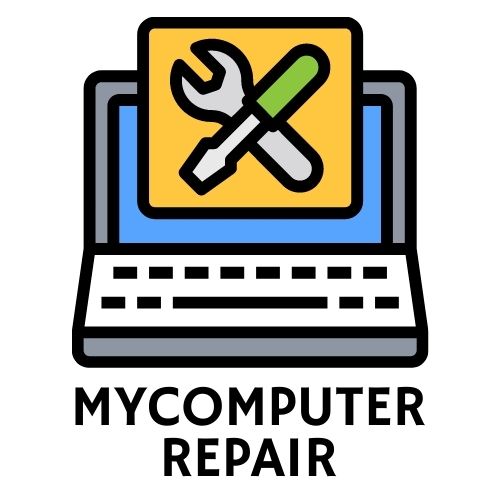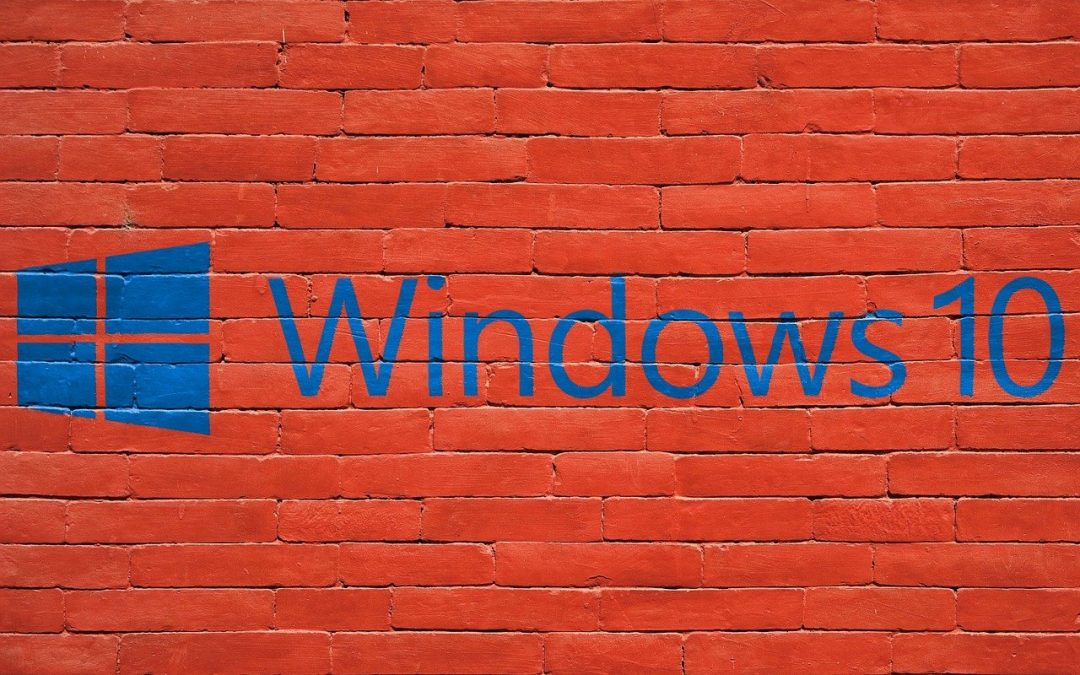Here are 14 ways to speed up Windows 10 when they start running slow. Nowadays, Windows 10 is one of the most efficient and widely used operating systems in the tech market. It has the best features that are convenient for productivity and entertainment purposes. However, it uses up a huge space in the storage system. When the storage gets full, this will slow down your Windows 10. To prevent it from slowing down, follow the fourteen ways to speed up Windows 10.
For computer repairs Malaysia, just bring your laptop, desktop computer and devices to MyComputer Repair and we will fix them for you.
Change Power Setting
Computer users set the power setting to “Power Saver” plan to reduce energy. However, when doing this, your computer’s performance will be slowed down. It is advisable to change your setting from “Power Saver” to “High Performance” or “Balanced”. This will help your computer to function more effectively.
Here’s how to change the power setting to “High Performance”
- Select Control Panel
- Click System and Security
- Choose Power Options
- Enable “High Performance” plan
Tip: If you are unplugged, choose the “Balanced” power plan. But if your computer/laptop is plugged into a power source, choose the “High Performance” plan.
Disable Programs that Run on Startup
Another reason for slow computer performance is when several programs run on Startup or in the background. Usually, you rarely use those programs, so it will be better if you disable them. They don’t give you benefits and yet they reduce your computer’s performance.
Here’s how you can disable programs on Startup:
- Click the “Start” button, then choose “Settings”.
- In the settings, choose “Apps” and then “Startup”
- In the “Startup” area, you will see a list of programs that you can disable.
- To disable a program, right-click on the specific program, then choose “Disable”.
Use ReadyBoost to Improve Performance
Windows 10 uses your computer’s hard disk to store cached data. When it needs the data, it fetches back from the hard disk. This process alone can take a long time. But you may use a feature called ReadyBoost. This feature allows you to use a removable drive to boost your computer’s performance. All you need to use this feature is a USB flash drive or a memory card that has 500MB free storage.
Note that you cannot use ReadyBoost if your Windows 10 is installed in an SSD. ReadyBoost will not work anymore, since SSD performance is already fast.
Here’s how to use the ReadyBoost Feature:
- Insert your USB flash drive into your computer’s USB port.
- Choose “File Explorer” from the taskbar.
- Right-click on the flash drive, then click properties.
- Choose the “ReadyBoost” button, then click “Use Device”.
- Lastly, click “OK”. This will allow windows to reserve a space on your flash drive.
Pause OneDrive from Syncing
OneDrive is built-in file storage for Windows 10. It is a useful backup tool that keeps your files updated and synced to all your computer devices. All you need to do is to sync all your files from OneDrive to all your computer devices. This will allow you to access your files from other devices, given that there is an internet connection. However, this feature slows down your computer. So if you are not using this feature, you can pause this temporarily.
Here’s how to pause OneDrive from syncing:
- Search OneDrive from the Taskbar.
- Choose OneDrive, then click More.
- Find and click “Pause Syncing”. You can now choose how long you want to temporarily pause the syncing function.
- Restart your computer
- If you want to restore the syncing feature, click OneDrive, then More, then click “Resume Syncing”
Put OneDrive Files on-Demand Feature
Some users do not want to stop the function of OneDrive. They want to keep both their computers and OneDrive updated with the latest files. But keeping OneDrive activated can cause sluggish computer performance. To deal with this problem, you can put OneDrive on an “on-Demand” feature. By doing this, you can still sync your files to your OneDrive only when necessary. And at the same time, your computer’s performance will speed up.
Here’s how to put OneDrive to an “on-Demand”:
- Search OneDrive from the Taskbar.
- Choose OneDrive, then click More.
- Find and click “Pause Syncing”. You can now choose how long you want to temporarily pause the syncing function.
Turn Off Search Indexing Feature
Search indexing is a feature on Windows 10 that allows you to quickly search files on your computer. If you are using an old computer, it will slow down with search indexing. So, you might have to turn off your search indexing feature. Doing so would boost your computer’s performance.
Here’s how to turn off Search Indexing:
- Click the “Start” button.
- Search and select the “Indexing Options”
- Click “Modify”, then choose “Show All Locations”
- Uncheck the boxes for all the chosen location, then click “OK”
Do Disk Cleanup
If your computer starts to perform slowly, you have to check your hard disk storage. You may have not noticed that your storage is bloated with several unnecessary files.
Here’s how to check your Hard Disk:
- Click the “Start” button, then choose “Settings”
- On the Settings, click “System” then “Storage”
Note: You can also use Storage Sense to delete unnecessary or temporary files. When you turn on Storage Sense, Windows 10 will automatically free some space in your storage.
Here’s how to turn on and configure Storage Sense:
- Click the “Start” button, then Settings.
- On “Settings”, choose “System” then “Storage”
- Turn on “Storage Sense”.
- Choose “Configure Storage Sense” or click on “Run it Now”
- Check the files you want to delete from “Recycle Bin” and “Downloads Folder”. You may also choose the time interval for cleanup.
- Select “Clean Up”
You may use the “Disk Cleanup” tool if you do not have the “Storage Sense” feature. Here’s how to use “Disk Cleanup”
- Type and select “Disk Cleanup” in the taskbar.
- Check the files you want to delete
- If you want to free up more space, choose “Clean Up System Files”
- After “Disk Cleanup”, access the storage capacity, select the files you want to delete.
- Click “OK”, then “Delete Files”
Use Registry Cleaner
Windows Registry deletes leftover files from deleted or uninstalled programs. However, Windows Registry does not always do its task properly. Sometimes, it does not detect leftover files. And these undetected files pile up, they can take up space on your storage. That’s why you should install Registry Cleaner on your computer.
Disable Visual Effects
Windows 10 has appealing animations and visual effects. These features can make your computer appearance more appealing, but they can use additional space in your system. This may not affect newer computers, however, they can slow down old versions of computers.
Here’s how to disable visual effects:
- On the taskbar, type and select “Performance”
- Choose the “Adjust the appearance and performance of Windows.
- Click the “Visual Effects” tab, then choose “Adjust for Best Performance”, then click “Apply”
- Lastly, restart your computer to assess the changes in your computer’s performance.
Enable Automated Windows Maintenance
Windows 10 automatically performs system maintenance where it updates and fixes problems after the detection process. You can set a specific time for Windows maintenance and updates, so your computer won’t restart while you are in the middle of doing tasks.
Here’s how to set computer maintenance on a specific time:
-
- In the Windows Search Bar, type “Windows Update Setting”, then run configuration.
- Choose “Update Settings”, then click “Change Active Hours”
- Set time where you don’t usually perform complicated tasks on your computer.
Delete Bloatware
When you install Windows 10, it usually comes with other pre-installed applications. You may not use some of them, so it is better that you delete the software that is not useful. You can get rid of all those bloatware by using security applications or Windows Defender.
Here’s how to use Windows Defender:
- Type “Windows Defender” on the search box.
- Press “Enter”, then click “Scan Now”
- Windows Defender will assess the system for bloatware or malware. Then, it will delete those malware and bloatware.
Defragment Hard Disk
If you are overusing your hard disk, it can get fragmented through time. This can slow down your computer’s performance. Luckily, Windows 10 has a built-in “Defragment” feature.
Here’s how to defragment your hard disk:
- In the taskbar, type “Defrag”
- An “Option” box will appear, then choose the drive that you want to defragment.
Note: You may also set a specific time for your computer to defragment automatically. You can do it by choosing “Run on Schedule” from the “Change Setting” button.
Turn On Game Mode
Windows 10 Creators Update has a new feature. It is Game Mode, where you can get the best system performance when you play games on your computer. It is purposely made for games, but you can also use it when you have several tabs in the background.
Here’s how to activate and turn on Game Mode:
- Open “Settings”, then go to “Gaming”
- Choose “Game Mode”
- To activate the game mode, press “Windows Key and G”.
Restart Windows
If your computer starts to run slow, close the tabs that you do not need. Then try to assess your computer for changes in its performance. Its performance should improve. But if not, restarting your Windows is the best answer.
Your Windows 10 is an investment for your productivity. However, if they don’t work well when you need them to, there might be problems with its system. Follow the fourteen ways above to help you with your struggles.
If your computer is still slow after following the fourteen ways to speed up Windows 10, you need an expert. MyComputer Repair is here to provide you services for your faulty computers, Mac, phones, and iPads. Visit our website at www.mycomputerrepair.com.my.


Recent Comments